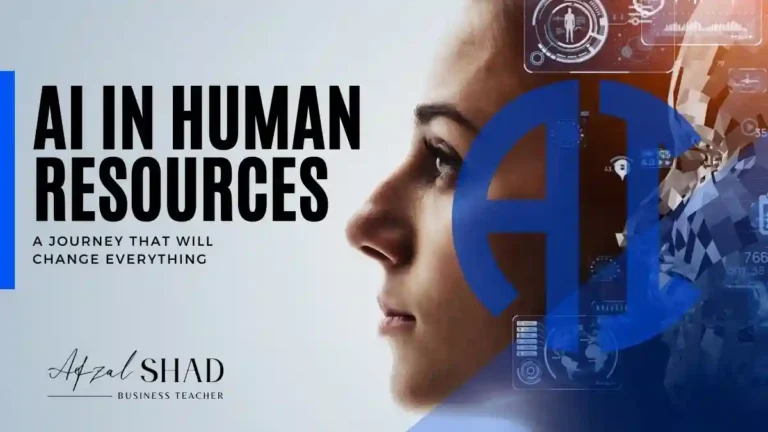Over the years, technology has played a key role in the incredible changes that have happened in the field of accounting. When we talk about The Rise of AI in Accounting in current times, the growth of Artificial Intelligence (AI) has become a major factor that is changing how accountants do their jobs. This piece goes deep into the complicated world of accounting and looks at how automation and AI have changed the field in big ways.
Not too long ago, accountants did everything by hand, reading through endless ledgers and carefully writing down all financial activities. As technology improved, these jobs became easier to do on computers. This made way for the new use of AI in accounting. The use of AI has become a defining trait in the quickly changing field of accounting. Automation, which is made possible by AI, is not just a trend; it is a basic shift that is changing the way accountants do their jobs.
Table of Contents
The Start of AI in Accounting
To fully understand how important AI is in accounting, one must look at how the field has changed over time. From keeping records by hand to the invention of computers, each major event smoothed the way for the current era of the Rise of AI in Accounting.
When artificial intelligence (AI) technologies like machine learning and natural language processing are used in accounting, they do work that should normally be done by accountants. The industry is slowly starting to use AI tools, which is a big change in how financial data is processed and examined.
The introduction of AI in accounting marks a major change in the fast-paced field of finance. The use of cutting edge technologies like machine learning and natural language processing is what AI, or Artificial Intelligence, means in the field of accounting. It changes everything because it automates boring chores and frees up accountants to make big decisions. While concerning the Rise of AI in Accounting & when it comes to using AI tools in the business world, accounting firms are all for it.
These tools improve accuracy, efficiency, and total productivity by automating tasks like data analysis and streamlining work processes. Accounting is changing, and AI is at the center of this change. It is reshaping the field for a future that is smarter and more tech-savvy.
Do you know AI is also used in Human Resource Management to remove the biasness in HR. We have written a brief on it too, please have a look at our article AI in Human Resources: A Journey That Will Change Everything
Why AI is good for accounting
Using AI in accounting has many perks. Some of the transformative benefits are higher accuracy, more efficiency, and the ability to handle huge amounts of data in minutes.
Better accuracy and efficiency
Imagine that everyday jobs are done at a speed and accuracy that have never been seen before. AI makes this possible. Routine tasks that take a lot of time are now automatic, giving accountants more time to work on more important, strategic tasks.
Using AI in accounting has benefits that can’t be matched, especially when it comes to making things more efficient and accurate. While talking about the Rise of AI in Accounting, AI-powered tools make it easier to do things over and over again, so accountants can spend their time on more complicated analyses and making strategic decisions. Routine tasks that are automated not only speed up work but also lower the chance of mistakes being made by people.
Accounting has become much more efficient thanks to AI, which makes sure that jobs are done quickly and correctly. Not only does this save time, but it also makes financial processes more accurate overall. This makes AI a key force in changing the face of modern accounting.
Features that save time
AI is the key to saving a lot of time, which is valuable. Professionals can focus on analysis, decision-making, and client interactions when repetitive jobs are taken care of by automation. As a result? A smoother, more efficient process leading towards the Rise of AI in Accounting
AI has huge time-saving benefits that can completely change the way accounting is done. By automating data processing, analysis, and chores that are done over and over again, accountants can focus on more strategic aspects of financial management. The Rise of AI in Accounting; The tools that are driven by AI can now quickly do boring tasks that used to take hours. This time efficiency not only boosts productivity, but it also lets professionals focus on activities that are more important, which leads to growth and innovation. The time that AI saves is then turned into a useful resource that helps accounting professionals move quickly through complicated financial situations. This changes the way the industry works and leads it to a more dynamic and efficient future with the Rise of AI in Accounting.
Better analysis of data
In this age of “big data,” being able to look at very large sets of data is very important. AI-powered tools can handle and understand data at a speed and scale that humans alone could not achieve. This means making better decisions and having a better grasp of the financial situation.
Incorporating AI into accounting gives it a big boost by making data analysis better. AI-powered tools can quickly handle huge datasets and pull out useful insights that would be hard to get with traditional methods. Because AI is so efficient, it improves the accuracy and depth of data analysis, which helps accountants understand all kinds of financial data. This changing ability not only speeds up the process of making decisions, but it also shows complex patterns and trends in the data. The Rise of AI in Accounting leading to the accounting professionals’ analytical skills taking a huge step forward when they use AI to analyze data. This helps people make better, more smart financial decisions.
There are problems and worries.
On the other hand, the fast adoption of AI in accounting has raised worries about job loss and moral issues. As technology becomes more important, questions about how automatic decision-making affects people and what the moral implications are become more important.
Fears of Losing Their Jobs
A lot of people worry about their jobs as technology grows. But it’s important to remember that AI isn’t removing accountants; it’s just making them better at what they do. Routine jobs may be done by machines, but people are still needed to make important decisions and build relationships with clients. (The Rise of AI in Accounting)
Ethics Things to Think About
When AI is used for good, it comes with a duty. As the field adapts to new technologies, ethical issues like bias in algorithms, openness, and fairness are very important and need to be taken into account.
Examples from real life
Even though some people were worried, AI has turned out to be very helpful for accounting companies. Case studies show examples of successful implementations that led to real changes in decision-making and productivity.
1. The UiPath: While talking about The Rise of AI in Accounting, the first name that comes in is a software business in Romania called UiPath makes a platform for robotic process automation (RPA). Software is used to automate repetitive jobs like data entry and reconciliation. RPA is a type of AI. A lot of accounting companies use UiPath’s RPA platform to automate tasks like paying and receiving bills, posting journal entries, and filing compliance reports.
2. A Black Line: BlackLine makes cloud-based accounting software that automates and speeds up the accounting process with AI. The software from BlackLine can instantly read invoices, pull out data, and match it to accounting records. For accountants, this can save a lot of time and make mistakes less likely. (The Rise of AI in Accounting)
3. Sage Account: Sage Intacct is a company that makes cloud-based accounting software that uses AI to help people understand their financial data. The software from Sage Intacct can look at financial data and find patterns and trends that would be hard to see by hand. This can help accountants make better choices about how to handle the business’s money. (The Rise of AI in Accounting)
All of these are ways that AI is being used in accounting. The financial process will likely be automated and made better in even more ways as AI keeps getting better.
What AI Can Do to Help Make Choices
AI is a key part of making decisions; it’s more of a strategic partner than a replacement for human intuition. AI uses complex algorithms and machine learning to look at huge datasets very quickly and find useful patterns. The Rise of AI in Accounting, this method is based on data and gives decision-makers a full picture of trends, risks, and opportunities. Importantly, AI helps people make decisions by giving them a data-based base. This lowers the room for error and improves total accuracy. When AI’s analytical skills are combined with human knowledge, better, more smart decisions are made that move businesses forward. This is a major shift, while the Rise of AI in Accounting, in how decisions are made and carried out in the modern workplace.
Effects on People Who Work in Accounting
The job of accountants is changing as the field goes through a huge change. As AI technologies become more common, people need to learn new skills and their jobs are changing to fit these new technologies. (The Rise of AI in Accounting)
Tips for the future: The Rise of AI in Accounting
The story talks about what the future holds for AI and accounting, including how it might be used more in everyday tasks, what improvements might be made, and what problems might come up.
Small and medium-sized businesses (SMEs) that use AI
The article stresses how important it is to make AI solutions fit the needs of small and medium-sized businesses (SMEs), even though bigger companies may be the first to use AI. Businesses of all kinds can benefit from automation now that AI tools are available to everyone.
Thoughts on Ethics in AI-Driven Accounting
It is very important to talk about the moral issues that come up with using AI in accounting. The story talks about ways to make sure that AI algorithms are fair, clear, and less biased. This is having an important role in The Rise of AI in Accounting
Regulatory Setting
As AI develops quickly, it becomes more and more important for regulators to keep an eye on it. The piece looks at the current rules and regulations and suggests that more standardization is needed to make sure that AI is used in an ethical way.
Initiatives for Education
Because AI can change things, the piece stresses how important it is for accountants to keep learning. To give professionals the skills they need for AI integration, training programs and efforts are very important.
AI is changing everything, including educational projects that will shape the future of learning. AI is being used by schools to make programs that teach kids the skills they need to be successful in the digital world. These projects, like machine learning classes and AI-powered tutoring tools, help people learn more about AI technologies. A big focus is also on continuing education for workers. Specialized training programs make sure that people stay up to date on AI developments. By using AI in school, teachers and students are getting ready for a future that is focused on technology, where being able to change and know how to use AI are important parts of having a well-rounded and forward-thinking set of skills.
The Human Touch in Accounting with AI
In this age of automation, the piece stresses how important it is to keep a balance between processes that are run by AI and those that are done by humans. Human accountants’ unique insights and ability to make complex decisions are still very useful.
Final Thoughts
Last but not least, The Rise of AI in Accounting marks a major change in the field. The story says again that automation and AI are changing everything, which is good news for the future of accounting.
FAQ’s about AI in Accounting
Is AI totally taking the place of human accountants?
No, AI is seen as a way to help people make better decisions, not as a way to replace them completely.
What skills do accountants need now that AI is around?
To keep up with how the job is changing, accountants need to learn how to analyze data, use AI technology, and keep learning.
How can AI in accounting help small businesses?
Customized AI solutions for small businesses can make tasks easier, boost efficiency, and help them make better choices.
What moral issues come up when AI is used in accounting?
Making sure AI systems are fair, clear, and free of biases are ethical issues that need to be addressed.
Does the use of AI in accounting have to follow any rules?
There are already rules in place, but more control and standardization are being asked for to deal with the ethical problems that come up with AI in accounting.




